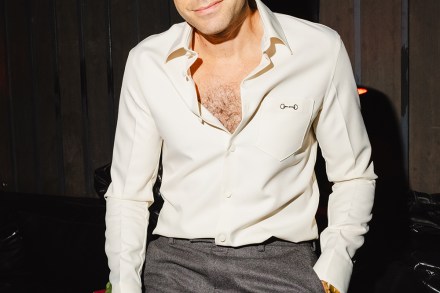The vanished glamour of New York nightlife
Mark Ronson has one of the finest heads of hair in all showbusiness. The music producer’s coiffure is a dark, whipped and quiffed thing that makes it look as though he naturally belongs on a Vespa in Capri, being ogled by the belle ragazze as he scoots on by. As a cultural object, it certainly surpasses the Oscar he won for the songs in that Lady Gaga remake of A Star is Born; it probably equals his Barbie soundtrack; and maybe even approaches the hits he made with and for Amy Winehouse. But it wasn’t always like that. Back in the 1990s, Ronson’s hair was a standard-issue crop, while he



